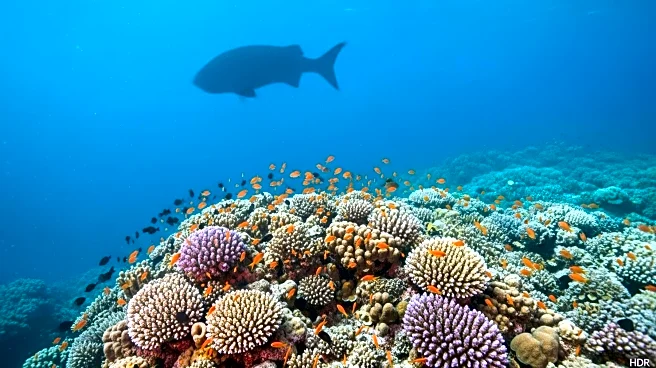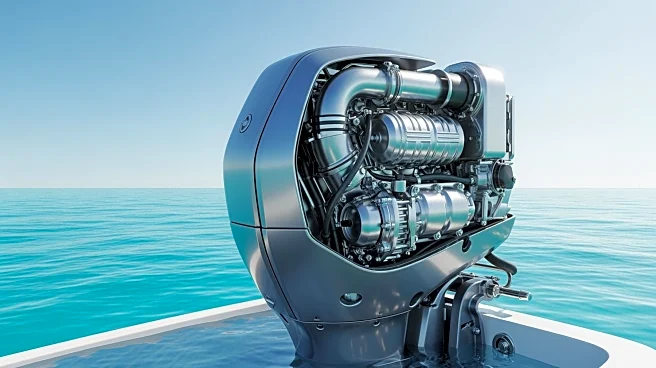What's Happening?
The Mediterranean Sea is experiencing significant ecological changes due to rising temperatures, leading to an influx of invasive species. These species, originating from warmer regions like the Red Sea, are altering the marine biodiversity and threatening native species. The phenomenon, known as tropicalization, has accelerated since the Suez Canal's expansion in 2015, allowing more species to migrate. The presence of invasive species such as lionfish and jellyfish is disrupting the ecosystem balance, impacting local fisheries and tourism industries.
Why It's Important?
The ecological shift in the Mediterranean Sea poses a threat to the region's biodiversity and economic stability. Local fisheries and tourism, which rely on native marine life, face challenges as invasive species outcompete native species for resources. This could lead to economic losses and necessitate changes in industry practices. The situation highlights the need for effective conservation strategies and international cooperation to protect marine ecosystems and sustain economic activities dependent on them.
What's Next?
Conservation efforts are expected to intensify, with a focus on establishing marine protected areas and promoting sustainable practices. Governments and environmental organizations may collaborate to develop strategies to mitigate the impact of invasive species. Public awareness campaigns could be launched to educate communities about the importance of preserving marine biodiversity. Research into adaptive measures for native species and the development of policies to regulate the Suez Canal's impact on marine migration may also be prioritized.










